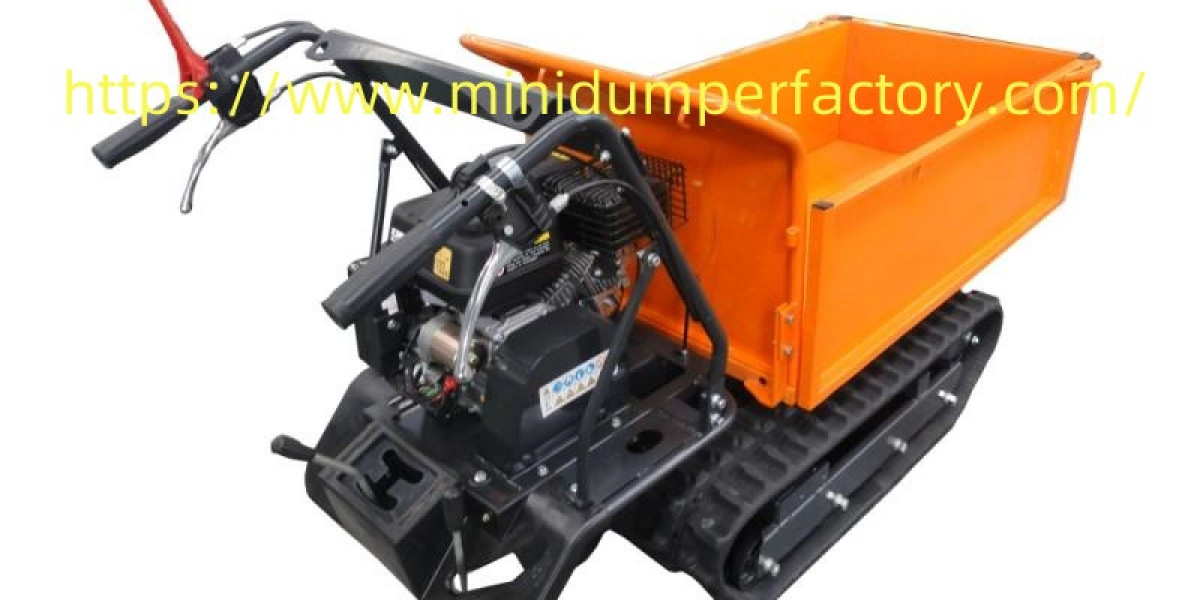Motor Wheelbarrow Factory customization is becoming a preferred approach for clients who require equipment that aligns with specific job demands. As project types grow more diverse, businesses in construction, agriculture, and material transport are looking for machinery that suits their workflow rather than relying on standard layouts. This shift has encouraged manufacturers to enhance their design flexibility and offer solutions shaped around real operating needs. One brand active in this direction is Minidumperfactory, whose work in adaptable equipment design has attracted attention from users seeking practical, customized configurations.
A major reason clients choose tailored options is the expanding range of project environments. Worksites may involve uneven ground, restricted pathways, or repeated heavy loading. Standard equipment can sometimes handle these tasks, but custom configurations provide refined stability and control. Manufacturers evaluate load patterns, daily usage levels, and terrain challenges before recommending a suitable combination of frame structure, wheel options, and power systems.
Another factor influencing customization is workflow planning. Different industries have distinct operating structures that require machinery to function smoothly alongside other tools. Some clients want equipment that fits into defined transport routes, while others request adjustable speed control or specific dumping angles. By analyzing workflow steps, engineers can create designs that limit unnecessary motion, reduce operator strain, and support steady productivity throughout the day.
Material compatibility also plays an important role in selecting custom solutions. Some projects involve loose soil, while others require transport of construction debris or landscaping materials. Each material behaves differently during movement, meaning the wheelbarrow's bucket depth, angle, and reinforcement style must match the texture and density of the load. Proper matching ensures that the equipment performs consistently without causing disruptions or frequent adjustments.
Manufacturers offering flexible design also support long-term planning. Many companies expect their workload to change as they expand services. Rather than replacing equipment entirely, custom-ready models allow adjustments to be made when needed. This includes modular frames, wheels that can be swapped for different terrains, and power systems selected to meet expected growth. Such planning helps companies stabilize future expenses and extend equipment usability.
Another appeal of custom solutions is operator comfort. Workers often use motorized wheelbarrows for long hours, making ergonomics a key consideration. Handle placement, control panel layout, and motion response can all be adjusted to align with user preferences. Comfortable equipment supports steady work and helps maintain consistent progress across demanding schedules.
Service communication is another reason clients choose manufacturers offering custom work. Detailed discussions during the design phase allow clients to express concerns, define expectations, and clarify usage habits. This reduces mismatches between equipment and tasks. Factories that support clear communication build stronger confidence with customers and provide solutions that align with everyday operational needs.
Clients also appreciate the stability that customized configurations bring to demanding schedules. When equipment fits the job environment accurately, there are fewer performance inconsistencies. Reduced adjustments lead to smoother load movement, predictable cycle times, and better coordination between workers. This stability supports project planning, especially when timelines are tight.
Durability is also influenced by customization. When components match the job environment, machines experience less unnecessary strain. Balanced loads, correct power distribution, and appropriate wheel choices help maintain equipment condition across repeated use. This contributes to dependable operation even when tasks vary throughout the season.
Toward the end of the selection process, many clients choose manufacturers with experience in adjustable design because it ensures smoother transitions between different requirements. With industries expanding their service ranges, equipment flexibility becomes increasingly valuable. Custom solutions help companies respond to new opportunities without major mechanical changes.
As customization continues to rise in demand, factories capable of practical, customer-focused planning are gaining more attention. Businesses that value dependable equipment recognize the importance of machinery built around their real operating habits. This is why tailored solutions from companies such as Minidumperfactory remain relevant to clients who prioritize consistency and adaptable performance. For more details on available configurations and product options, customers can refer to https://www.minidumperfactory.com/.
